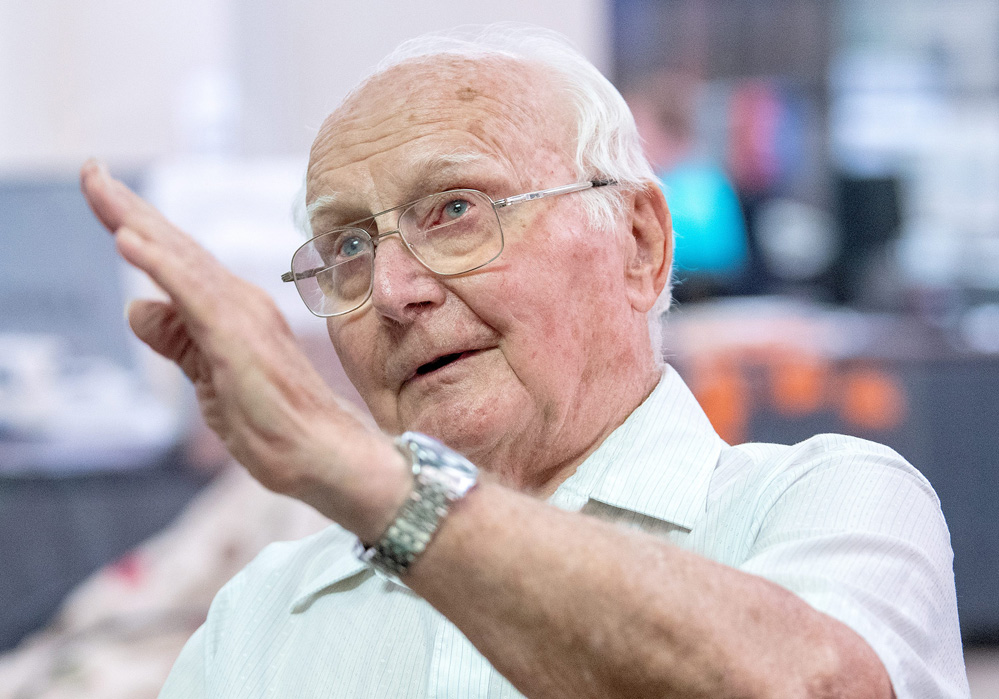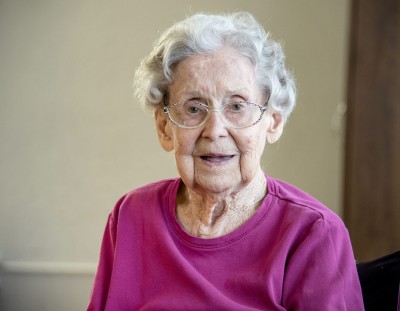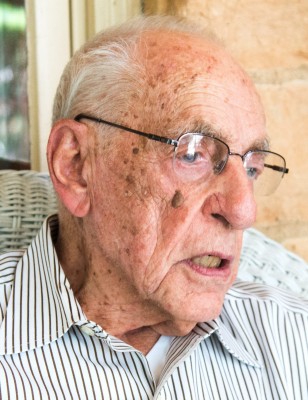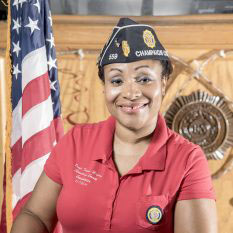Tom Gordon
By Paul Wood

Photo By Stephen Haas/The News-Gazette
URBANA — Tom Gordon didn’t care to join the Army, because he’d have to carry an M1 carbine.
Instead, he enlisted in the Air Force and flew in a squadron where some planes carried small atomic bombs.
It was the Cold War, and 1st Lt. Gordon thought he might end up in Korea. Instead, he was based as a fighter pilot in England, where he was told to be careful not to cross the Iron Curtain into Germany and start World War III.
Gordon, now 88, grew up in Urbana and still lives there. So, he said, it was natural for him to move a few blocks over — to the University of Illinois, where male students had to take at least two years of ROTC training in the years just after World War II.
He said he was grateful for that training.
“It was one of the best things that ever happened to me,” he said.
Gordon served from 1951 to 1955, commissioned as an officer immediately.
He was able to skip menial duties, he said, “and the pay was more.”
But he said he was very aware of the danger of the early years of jet fighters.
“I didn’t think fighter pilots ought to be married,” he said.
Gordon “was in the first wing that had the capability of delivering a small atomic bomb,” he said.
The esprit de corps in U.S. pilots flying NATO missions meant for some jollity.
Gordon had two nicknames, he said. One, playing off his last name, was obvious: “Flash.” The other was “Fudge.”
Gordon said that he had a hankering for sweets while in England, so far from home, so he decided to make fudge. The end result: a ruined pot.
He said that since he’d tried to cut corners and didn’t have a candy thermometer, he also met the definition of “fudging it.”
Another pilot Gordon knew had a more painful nickname, in his opinion: “Wheels” — because, once while attempting to land, Wheels “forgot to put down his landing gear,” he said.
There were a lot of things that could go wrong, Gordon recalled.
His unit frequently traveled to North Africa, sometimes stopping in southern France on the way.
“The French had a way of being not very tidy on the runways,” he said, recalling how foreign objects, including airplane parts, would litter the pavement.
Once on one of those runways, Gordon said, he could hear it as a chunk of metal was sucked up into his engine and started banging around. He had to abort the flight.
And pilots who had to carry around small atomic bombs meant for tactical use also had concerns, he said.
He notes that during his time, the Air Force never lost one; however, a jet with his name on the cockpit sits on the bottom of the Mediterranean, ditched by another pilot, who died.
Then there were the NATO exercises, Gordon said.
“The sky was full of airplanes. I don’t know how we didn’t hit each other,” he said.
He also recalls a time in 1952 when it was dangerous to so much as breathe in London, where even the civilians had a bad time.
Gordon, who — as a pilot — underwent meteorological training that taught him about such things as temperature inversion, said a high-pressure weather system had stalled over the London area at one point back then. A layer of warm air trapped stagnant air at ground level, so the city’s high-sulfur coal smoke could not rise, he said.
The smog was so dense that residents in some sections of the city were unable to see their feet as they walked, he said, and for five days, the Great Smog paralyzed London and crippled transportation — except for the London Underground train system.
Gordon said he remembers omnibus drivers had to have a helper walk ahead of their vehicle to keep them from running into anything.
“I’ll never forget those experiences. But I’m not a hero like the people who got shot at,” he said.
He said his flight training later served him well as a commercial pilot and a 30-year instructor for the Institution of Aviation.
Do you know a veteran who could share a story about military service? Contact Paul Wood at pwood@news-gazette.com.
Read more stories from local veterans:
 Hazel Peterson
PAXTON — Talking with one tough Marine, it’s impressive that Hazel Peterson was in the first class of women to be able t …
Hazel Peterson
PAXTON — Talking with one tough Marine, it’s impressive that Hazel Peterson was in the first class of women to be able t …
 Richard Cogdal
URBANA — Besides winning medals for serving at sea off Iwo Jima and Okinawa, Richard Cogdal touched history when he had …
Richard Cogdal
URBANA — Besides winning medals for serving at sea off Iwo Jima and Okinawa, Richard Cogdal touched history when he had …
 Ronnie Turner-Winston
URBANA — Ronnie Turner-Winston considered her role as a chapel management specialist working with soldiers during Operat …
Ronnie Turner-Winston
URBANA — Ronnie Turner-Winston considered her role as a chapel management specialist working with soldiers during Operat …